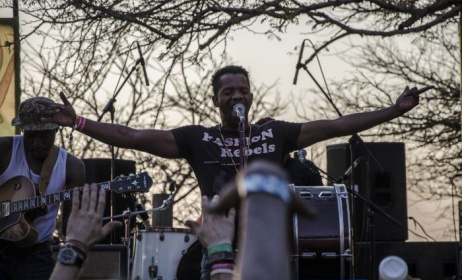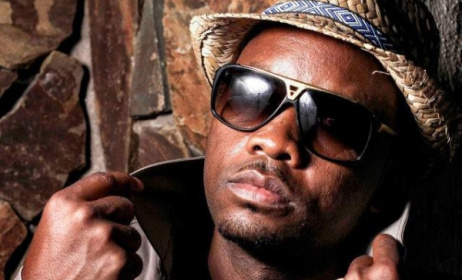Interview: DOADOA director Faisal Kiwewa
By Gemma Solés
East African performing arts professionals are meeting this week at the source of the Nile. For four days starting on Wednesday 6 May, the Ugandan city of Jinja will host the fourth edition of DOADOA, the East African Performing Arts Market, which is expected to open new paths of cooperation to boost the sector.
 DOADOA and Bayimba Foundation director Faisal Kiwewa. Photo: womex.com
DOADOA and Bayimba Foundation director Faisal Kiwewa. Photo: womex.com
Hosted by the Bayimba Foundation, DOADOA is growing in size and relevance every year. The organisation’s director, Faisal Kiwewa, recently told Music In Africa that since the first DOADOA in 2012, there have been many partnerships established and strengthened to enable creative initiatives in the region as well as further afield. “The past three editions have seen a growing number of performing arts professionals attending and have helped to facilitate collaborations, exchanges and booking of artists to perform at festivals across the globe,” says Faisal. “Even though much of the audience is still local and regional, there is a growing interest from around the world for East African content and artists are starting to embrace that opportunity.”
East Africa is a vast region with an immense diversity in terms of culture, language and politics. DOADOA aims to unite the region despite these differences. “The great and lasting benefit of DOADOA is simply the unique chance to meet one’s peers from so many different countries, cultural, social and professional backgrounds. The opportunity to speak at length with each other is invaluable,” says Faisal. “DOADOA continues to provide a platform for professional networking and co-learning, gathering various stakeholders, organizations and businesses with a view to create demand and develop a market for East African performing arts and artists and to increase exposure by programming showcases for artists.”
During the four days of this meeting, a line-up of respected speakers, music critics, producers, promoters, artists and other industry specialists will address topics facing the industry. One of the central topics of DOADOA this year will be piracy, which continues to prevent artists from making a living, both globally and particularly within the East African region. Faisal explains: “We have invited copyright enforcement organisations to present to the delegates on the successes and failures as well as highlighting the ways in which artists can earn their royalties.”
Another key focus of DOADOA is to generate interest in the sounds emerging from the East African region and to give them an international appeal. The organizers have therefore made sure to invite event organisers, festival promoters and venue owners from the rest of Africa, as well as Europe and the USA, who can then book some of the showcased artists, as well as share their expertise and experience with others. Faisal explains: “DOADOA realizes that within East Africa there are more than 70 festivals each year and many of them struggle to find regional artists to programme. We focus on getting the festival programmers to attend DOADOA so they can scout for the content they need. That has made it easier for both the artist and the festivals.”
DOADOA therefore provides a valuable opportunity for local artists, who still face numerous challenges when trying to break into the international market. Faisal continues: “African artists in general are challenged with extra conditions to get into the European and US market, such as visa issues, travel costs, lack of name recognition and less interested audiences. DOADOA invites tour managers and regional promoters that have toured artists before to share their experiences and tips on how to make this process work. DOADOA also partners and encourages performing artists to apply to showcase at other international markets like WOMEX, MIDEM, Babel Med and Visa For Music.”
With a packed line-up of workshops, conferences and artist showcases (see here), it is expected that DOADOA this year will continue to gain in international relevance and further strengthen the music scene in Uganda and the entire East African region.
























Commentaires
s'identifier or register to post comments